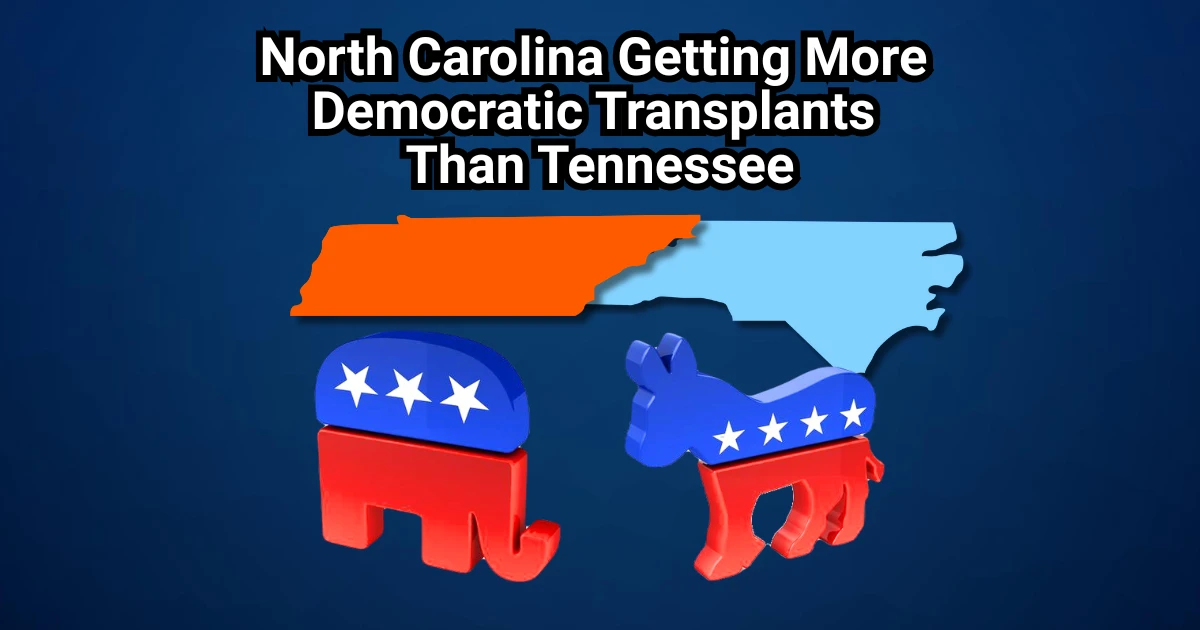As Americans increasingly relocate in search of opportunity, climate, and affordability, two Southern states—North Carolina and Tennessee—are emerging as popular destinations. However, a deeper examination of migration patterns reveals a key political divide: North Carolina is attracting more Democratic-leaning newcomers, particularly from the Northeast, whereas Tennessee’s growth remains more ideologically diverse.
At the center of North Carolina’s appeal is the Research Triangle, a region anchored by three major universities—Duke, the University of North Carolina at Chapel Hill, and NC State—and home to Research Triangle Park, the largest research and development hub in the United States. Together, they offer a thriving ecosystem of academic, technology, and biotech jobs that is attracting thousands of highly educated professionals, many from traditionally Democratic strongholds such as New York, Massachusetts, and New Jersey.
Recent demographic data supports the trend. According to migration studies, nearly half of North Carolina’s population growth in the past decade has come from out-of-state residents. Among them, a significant share hails from the Northeast—especially New York, which now ranks as the top state of origin for new North Carolinians. Analysts note that these newcomers are not just changing ZIP codes; they’re reshaping the political landscape.
“These aren’t just transplants—they’re voters,” said one political analyst. “The types of jobs and educational opportunities that draw people to places like Raleigh or Chapel Hill tend to appeal to younger, more progressive professionals. And many of them are bringing their politics with them.”
That pattern stands in contrast to Tennessee, which has also experienced rapid population growth, particularly in cities such as Nashville and Chattanooga. But unlike North Carolina, Tennessee doesn’t have a region comparable in scale or academic influence to the Research Triangle. As a result, its inbound migration has been more politically diverse, and in many areas, it has reinforced existing conservative majorities.
Tennessee’s economy has boomed thanks to manufacturing, logistics, and entertainment—industries that attract a broader political mix. While some urban areas in Tennessee are trending blue, the overall state remains solidly Republican, both in voter registration and electoral outcomes.
The implications for national politics are significant. North Carolina has become one of the country’s most competitive battleground states, while Tennessee remains firmly in the GOP column. Experts say the growing ideological gap between these neighboring states may be less about culture and more about careers.
“In the end, it’s about where people find opportunity,” said another analyst. “North Carolina’s investment in higher education and research is paying off—not just economically, but politically.”
As the 2026 midterms approach, both states will be closely watched. However, if current trends continue, North Carolina will likely move closer to the political center, while Tennessee will maintain its position on the right. The new Southern map, it seems, is being redrawn not just by where people move, but by why they move—and what they do when they get there.









